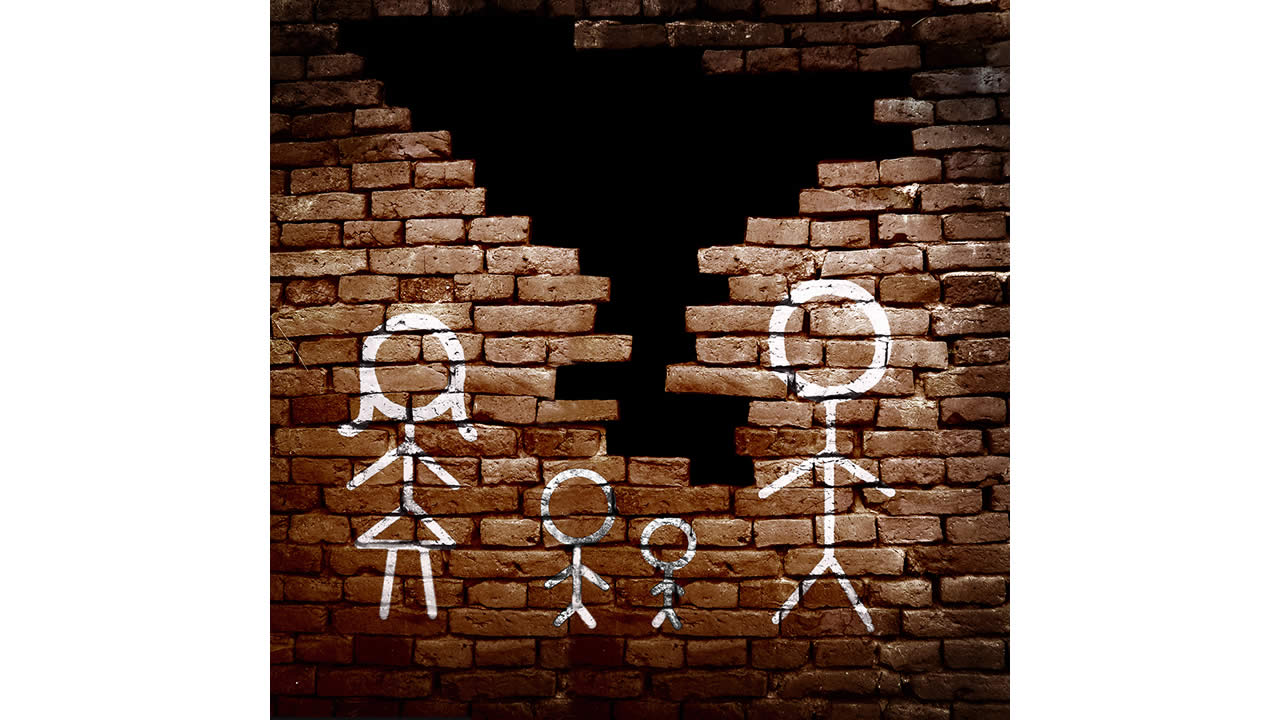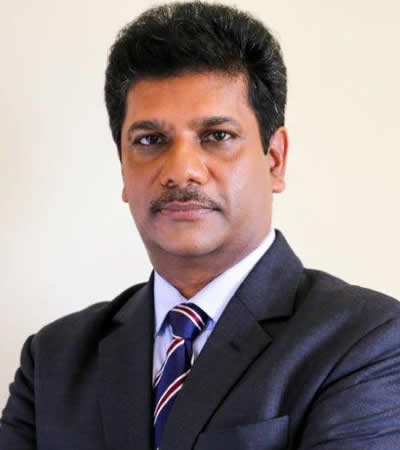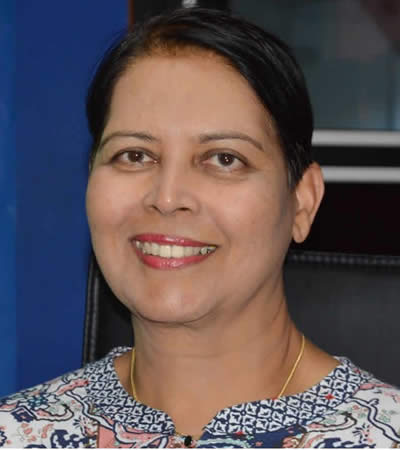
It is highly believed that family is the basic unit of society. Confucius has rightly said that “the strength of a nation derives from the integrity of the home.” For the International Day of Families celebrated on 15th May 2019, Mauritius chose to celebrate under the theme “A United Family, A United Country.” Strong families are considered to be the building blocks of strong societies and strong communities are the building blocks of strong nations. Experts elucidate on this issue.
 Since some years now, Mauritius has been witnessing a turbulence within the families with divorce rate on the rise as well as violence. Besides, the rate of marriage is also in decline. For example, in 2007, the number of persons married per 1,000 mid-year population fell from 21.1 in 1993 to 15.4. Similarly, the number of divorced persons per 1,000 mid-year population increased from 1.4 in 1993 to 3.2 in 2017.
Since some years now, Mauritius has been witnessing a turbulence within the families with divorce rate on the rise as well as violence. Besides, the rate of marriage is also in decline. For example, in 2007, the number of persons married per 1,000 mid-year population fell from 21.1 in 1993 to 15.4. Similarly, the number of divorced persons per 1,000 mid-year population increased from 1.4 in 1993 to 3.2 in 2017.
Furthermore, there have been dreadful cases where a son killed his parents or husbands killed their wives. Women are more likely to be victims of domestic violence. In 2017, out of 1,703 new cases of domestic violence reported at the Ministry of Gender Equality, Child Development and Family Welfare, nearly 87% were against women. The number of new cases of domestic violence against women decreased from 1,852 in 2016 to 1,483 in 2017. The number of men victims of domestic violence decreased from 225 to 220 during the same period.
Yana Bhageerutty, psychologist and lecturer at Middlesex University, talks about changes related to a dynamic system, where all units in the family are viewed as key elements to the proper functioning of the family unit within society. “In this case, if we look at demographic factors surrounding and influencing the family, we can only consider that the family is not breaking down but adapting and morphing to fit in with the changes at a macrocosmic, mesocosmic and microcosmic level. The constructive or destructive component will be determined by how well members of the family adapt and adjust to this change and feel supported during the different evolutive stages.”

She explains that the danger for us lies exactly in this openness which accommodates other cultures which, currently with so many foreigners living in the country, has a potential to and is already re-defining our local culture according to their terms and conditions. “With this new demographic in place to help boost our economy, the Mauritian family needs to understand and connect with his roots and each family unit will need to educate younger ones on local beliefs, moral values and ensure there is a transmission of a true Mauritian culture which is evidenced in the living of each individual.”

She recalls that we need to remember that our traditional structure of extended families and natural support systems have kept families functional for a long time. “There are changes which are challenging the bonding element, which have been part of our culture for ages and weakening the social support system by creating isolation of family members and consequently the family unit itself. When this unit is vulnerable and the general mental health of individuals is at risk, the consequences are what we are witnessing at several levels of our society.”
For her, if we do not work on the re-definition of our society by responsibilising our citizens and re-instilling the feeling of care, tolerance, courtesy and unique Mauritian love for others, we are heading into a disintegration of our root identities and an emergence of a new one where individuals will have to cope with the consequences thereof to the risk of waking up one day and realising that our unity and tolerance may become a distant past narrative.
Professor Sheila Bunwaree recalls that there is no doubt that if we have larger numbers of united families, the better it would be for society, but extrapolating this to a united country is somewhat of a misconception. “From the point of view of a slogan, it sounds good and may even be somewhat aspirational- but the reality on the ground is a different one - sadly, our country is increasingly polarized. True, we do not have an open war. But we certainly have growing tensions and conflicts. How can we call ourselves a united country when some segments of society are excluded? How can a country be united when there is no meritocracy, when there is growing poverty and inequality, when families are struggling to make both ends meet and have no time for leisure and to care effectively for their children and the elderly? The NGO ‘Affirmative Action’s work shows how some families continue to face persistent forms of social injustice, thus highlighting that we are sitting on kegs of powder as a nation.”
Causes of family breakdown
Professor Sheila Bunwaree explains that understanding family breakdown only from within the family set-up itself would be a wrong approach. “External dynamics also impact on families. Let us take the case of an economic recession, for instance. Research shows that loss of jobs can cause straining of relationships, can sometimes lead to greater substance abuse, and even violence. However, when people discuss family breakdown, they tend to speak of erosion of values, poor parenting, rising levels of divorce, ill effects of drugs, family members hooked on their technological devices, excessive gambling, etc. – all these are certainly true but not the only culprits. Incompetent governance and absence of appropriate policies can also contribute to the breakdown of family units.”

Economic impact
Broken families have an impact on the economy, experts say. Amit Achameesing, founder and Head of Programme of the New Economic Thinking Academy (Sey), argues that a fragmented family is generally an unconventional family in which the child has to bear the brunt of the fragmentation. “A fragmented family might be a child who is born outside of marriage and/or not raised by the two biological parents. The permanent instability, which is often associated with a fragmented family, means that the child has a higher probability of doing less well in school, which would eventually result in a less successful economic situation as an adult. In that case, this means that the contribution of this adult to national output and economic prosperity of Mauritius is constrained. Moreover, less successful people who come from fragmented families often violate social norms and hence impose social costs on the country.”
He states that in addition to the social costs, the country is deprived of a substantial amount of human capital, which means that family fragmentation slows down the rate of economic growth and improvements in the quality of life of its people. “Furthermore, the costs of family fragmentation are often passed on from one generation to the next, which means that the intergenerational negative consequences might be persistent for the economy over time.”
In order to deal with the situation, he believes that first, we need to identify the causes of family fragmentation. “Very often, families fragment because of their financial situation. Therefore, addressing the problem of economic inequality is one solution. However, even rich children suffer later in life if they come from a fragmented family. Thus, a more general solution would be education. It is clear that a more equal society and a well-educated population with a strong set of values is likely to mitigate the causes and consequences of fragmented families.”
Impact of macroeconomic policies
Professor Sheila Bunwaree highlights that people tend to think of the family institution in isolation but this question proves that there is a growing consciousness of the linkages and connections between policies being made and their implications in our lives. “The most worrying sign of the forthcoming budget is the growing level of indebtedness of the country. We have gone beyond our statutory limit; the IMF is sounding the alarm bells but the authorities do not seem to care. Our children and future generations of Mauritian families run the risk of facing a disastrous economic situation with multiple ramifications on social life. People who think and genuinely have the interests and welfare of all at heart should join forces and act together for an alternative model of development and new forms of human centred governance. Only then will we have the space for maximizing the welfare of all families.”
Effect on workforce and productivity
There is no doubt that turbulences within the families is reflected at the workplace, hence affecting productivity. Roshan Seetohul, vice president corporate Affairs of EURO CRM and President of OTAM reveals in today’s cut-throat competition world, a company should strive hard to remain competitive and remain profitable for the satisfaction of shareholders and for further business progression. “In order to remain competitive and a profitable organization, the most valuable asset of any company is People. Labour is of paramount importance. Studies and practical experiences have shown that behaviours and attitudes of some people can be detrimental for the company’s overall performance. Studies have also shown that some persons from the fragmented families have an impact on the productivity, thus affecting the efficiency, yield and the output. If these fragmented families are not well accompanied this can affect the whole company by not having a good team spirit and thus not able to deliver expected results.
He explains that due to their personal and family problems, employees are often seen as not happy people at work, thus this may influence or reflect on the team output and also causing a low morale. “There is also the health aspect where the mind-set of this category of people is often off mood at the work places. With low morale, this tends to have a negative impact on team work, thus affecting production output. Employees who do not enjoy their workplace can drag the team down and can influence peers, if not tackled at an early stage. High absenteeism is also noted for both minor and major reasons. Medical visits are also high on the agenda, thus can affect the production chain.”

Reversing the trend
If the situation is getting worse, it is time to reverse the trend. For Yana Bhageerutty, the first action is to open a dialogue on identifying the factors and mapping out what has contributed to the challenges for the Mauritian families. “Once qualitative and quantitative components are identified, there needs to be a genuine, and not politically guided attempt to address these at the different levels where there are most urgent problematic units identified.”
The example needs to come from our leaders who have to put their political agendas to a rest and really consider what is most important for the country, she adds. “In the family realm, we need to see more inclusion rather than exclusion. Culturally heinous acts need to be severely punished by the law. There has to be a cultural education and awareness demonstrated by people who choose to come and live alongside Mauritians. Many come to Mauritius and, instead of adapting, try to change what they feel is different from their original cultures and infiltrate our own, hence causing the erosion.”
Professor Sheila Bunwaree, on her part, argues that ensuring strong family bonds requires that we instil values such as loving, caring, respect of the other, sharing, empathy, truth in our children. “However, if the conditions impacting on the family unit are such that there is little or no space to nurture the family and family bonds, there can easily be a descent towards chaos. This is why it is so very important to have a human-centered governance, which is focused on creating a healthy and happy society.”
She states that reversing certain trends is not too difficult but the political will must be there. “Let us take for instance the long awaited Children’s Bill. Instead of prioritizing our children’s welfare, government judged it right to call for a certificate of urgency to pass other bills such as the recent Immigration Bill, for instance. Other bills such as the Disability Bill, the Gender Equality Bill, the Climate Change Bill, all of which have implications for families and family welfare but you would agree with me that they are not seen as a priority by the current regime.”
Another means to reverse the trend is to have a relevant education system, one which instills values in our young children, one which includes rather than excludes, she adds. “We have just seen how the NGO Think Mauritius and several former Ministers of Education have denounced the reforms introduced by this Government. They are all crying for greater values to be taught and instilled in our young people. Reversing the trend also requires that we make of our economy an inclusive one. If we carry on focusing on growth per se at the detriment of the environment and job creation, there will be little space for families to blossom and family bonds to be consolidated. Sometimes, families become the victims of wrong macroeconomic policies and incompetent governance.”
 J'aime
J'aime














